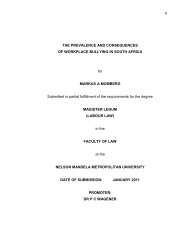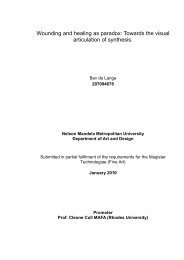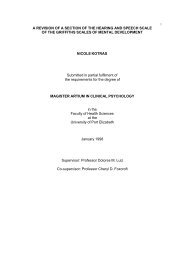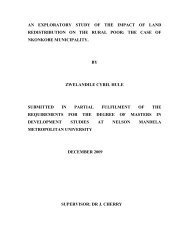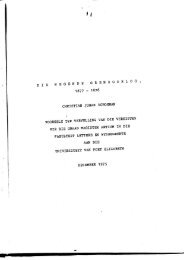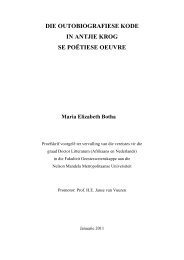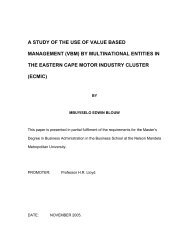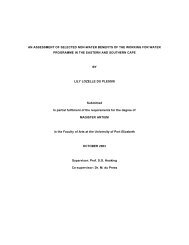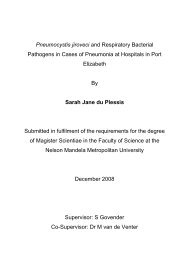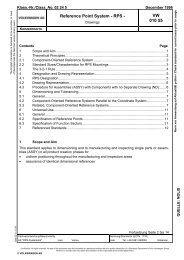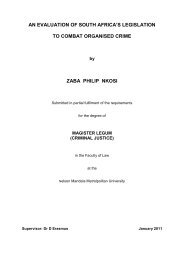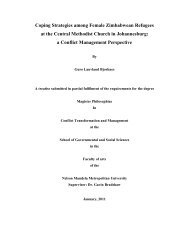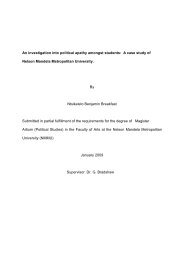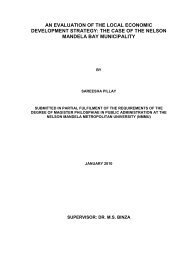Sulani Heunis.pdf - Nelson Mandela Metropolitan University
Sulani Heunis.pdf - Nelson Mandela Metropolitan University
Sulani Heunis.pdf - Nelson Mandela Metropolitan University
Create successful ePaper yourself
Turn your PDF publications into a flip-book with our unique Google optimized e-Paper software.
SUMMARY<br />
In this study the liturgical usage of the organ is investigated within a post-<br />
modern society. It focuses specifically on the church services of the Dutch<br />
Reformed Congregations of Port Elizabeth with regards to the functionality of<br />
the organ during morning and evening services. The objectives of the study<br />
are to demonstrate the current situation of musical worship in the Dutch<br />
Reformed Congregations of Port Elizabeth. Furthermore it serves as a way to<br />
indicate any deficiency in the field, which would need to be addressed. In<br />
order to achieve these objectives, both a qualitative and quantitative study is<br />
undertaken. The qualitative study investigates existing literature regarding the<br />
church service and its music. The quantitative study comprises an analysis of<br />
self-administered questionnaires that was handed over for completion by the<br />
Dutch Reformed Congregations of Port Elizabeth. The results obtained were<br />
electronically processed to percentages and graphic illustrations. In this minitreatise<br />
it is argued that the usage of other music instruments (in the form of<br />
music worship groups) during church services could possibly lead to a change<br />
in the liturgical function of the organ. It was found that the usage of the organ<br />
in the Dutch Reformed Congregations of Port Elizabeth was mainly retained<br />
during morning services. During evening services however, the usage of other<br />
music instruments was in the majority, which resulted in a decrease of organ<br />
usage. It was further discovered that a large group of organists are not<br />
involved with music worship groups. Training of organists in a contemporary<br />
style of music worship will therefore serve as a significant purpose to fulfil this<br />
deficiency.<br />
Keywords: post-modern, spirituality, church service, liturgy/liturgical, liturgists,<br />
organ, music worship, music worship groups, contemporary<br />
v



